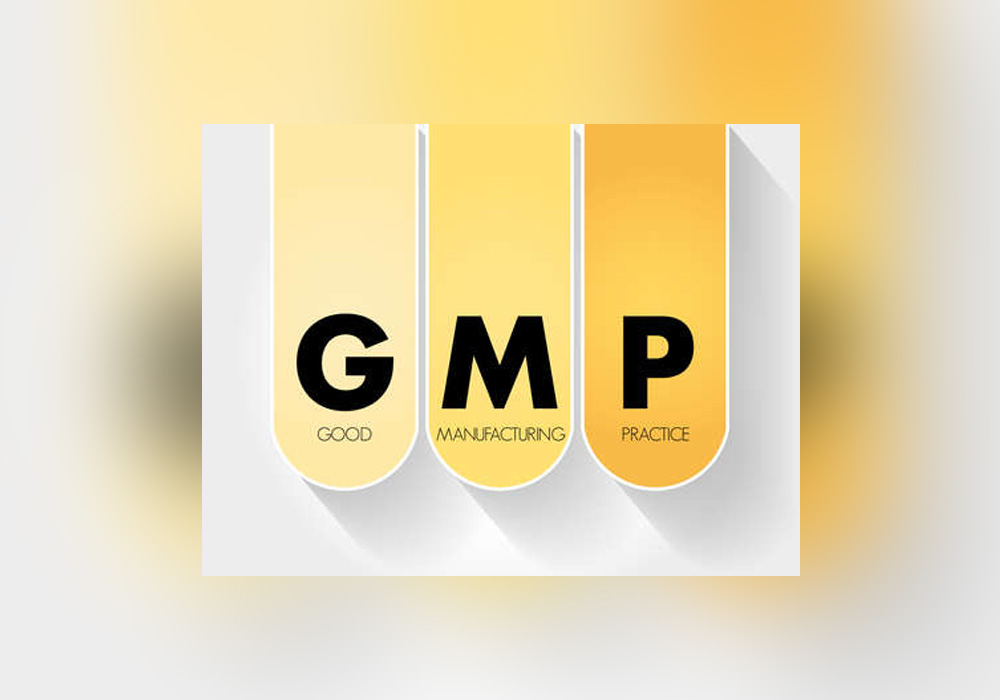GMP Certification – Good Manufacturing Practice | Accredify Global

What is Good Manufacturing Practices (GMP)?
Good Manufacturing Practice (GMP) is a term that is recognized worldwide for the control and management of manufacturing, testing and overall quality control of food and pharmaceutical products. GMP takes quality assurance approach, which ensures that products are consistently produced and controlled to the quality standards appropriate to their intended use and as required by the marketing authorization.
GMP addresses issues including documentation, record keeping, personnel qualifications, sanitation, cleanliness, equipment verification, process validation, and complaint handling. Most GMP requirements are very general and open ended, allowing each manufacturer to decide individually how to best implement the necessary controls.
The quality approach of GMP ensures manufacturing, enabling companies to minimize or eliminate instances of contamination, mixups, and errors. This in turn, protects the consumer from purchasing a product, which is not effective or even dangerous. Failure of firms to comply with GMP regulations can result in very serious consequences including recall, seizure, fines, and jail time.
It is believed that GMP is a good business tool, which will help to refine both compliance and performance of the Company. GMP requirements are largely common sense practices, which will help companies better itself as it moves toward a quality approach using continuous improvement.
GMP is also sometimes referred to as "CGMP". The "current," methodologies of manufacture, testing, design and control. The Manufacturers must employ technologies and systems, which are up-to-date. Systems and equipment used to prevent contamination, mixups, and errors are adequate by today's standards.
Accredify offers for Compliance Certification to Good Manufacturing Practices- GMP in Pharmaceutical and Food Industries.
Who Needs Good Manufacturing Practices (GMP) Certification?
GMP certification is essential for businesses involved in::
- Pharmaceutical & healthcare products.
- Food & beverage manufacturing.
- Cosmetics & personal care industries.
- Dietary supplements & nutraceuticals.
- Medical devices & biotechnology.
- Packaging & raw material suppliers.
Importance of Good Manufacturing Practices (GMP) Certification
With 60% of global consumers prioritizing product safety, Good Manufacturing Practices (GMP) helps businesses:
- ✅ Ensure 100% regulatory compliance with FDA, EU Cosmetics Regulation, and ISO standards.
- ✅ Reduce contamination risks by up to 40%.
- ✅ Enhance production efficiency & reduce waste.
- ✅ Improve consumer trust & brand reputation.
Good Manufacturing Practices (GMP) and Its Major Aspects in Business
Good Manufacturing Practices (GMP) integrates safety into daily operations with:
- Raw material sourcing & quality control.
- Manufacturing process standardization.
- Hygiene & contamination control measures.
- Product testing & validation protocols.
- Storage, distribution & traceability requirements.
The Principles of Good Manufacturing Practices (GMP) Certification
The principles of Good Manufacturing Practices (GMP) include:
- Quality Management – Ensuring product consistency & safety.
- Hygiene & Sanitation – Preventing contamination & cross-contamination.
- Process Validation – Maintaining consistency in production quality.
- Traceability & Record-Keeping – Ensuring full product accountability.
- Regular Audits & Compliance Monitoring – Continuous quality improvement.
Checklist for Good Manufacturing Practices (GMP) Certification
- ✅ Implement quality control & production monitoring systems
- ✅ Ensure raw material & supplier compliance
- ✅ Establish manufacturing hygiene & contamination controls
- ✅ Train employees on GMP best practices
- ✅ Maintain detailed batch records & quality documentation
Is Good Manufacturing Practices (GMP) Certification mandatory or a legal requirement?
GMP certification is legally required in many industries, particularly:
- Pharmaceuticals & healthcare (FDA, WHO, EMA regulations)
- Food & beverage industries (FDA, Codex Alimentarius, EU compliance)
- Cosmetics & personal care products (ISO 22716 & EU regulations)
Non-compliance can lead to severe penalties, legal actions, and product recalls.
Services
Benefits of Good Manufacturing Practices (GMP) Certification
40% reduction in production contamination risks.
Higher acceptance in global cosmetic markets.
Enhanced brand credibility & consumer trust.
Improved compliance with international regulations.
Lower product recalls & supply chain disruptions.
Requirements of Good Manufacturing Practices (GMP) Certification
Develop a GMP-compliant Quality Management System (QMS).
Ensure hygiene, safety, and traceability measures.
Implement supplier & raw material quality controls.
Train staff in GMP guidelines & compliance requirements.
Conduct internal audits & continuous monitoring.
Cost of Good Manufacturing Practices (GMP) Certification
The cost of Good Manufacturing Practices (GMP) certification varies depending on the size and complexity of the organization. However, the investment can lead to significant energy cost savings and improved energy efficiency.
On average, Good Manufacturing Practices (GMP) certification costs range from $10,000 to $50,000 ,based on the business needs.
PDCA Cycle | Accredify Global
- Plan – to think that what do we need to achieve in our organization
- Do – to execute a planned action which will help us achieve the required objective
- Check – monitor against the standards) (policies, objectives, requirements)
- Action – finally implementing what has been rechecked.
ISO CERTIFICATION. 3 STEPS. 30 DAYS. DONE !! | ACCREDIFY GLOBAL
Accredify Global, we follow a structured and transparent ISO certification process to help businesses achieve international compliance efficiently. Our streamlined approach ensures a hassle-free experience from initial consultation to final certification..
3. Audit Review & Certification
- Objective: Validate your management system through an external audit and achieve certification.
- Actions:
- Conduct an internal audit to ensure readiness for the certification audit, utilizing Accredify Global's auditing tools and resources.
- Schedule and undergo an external audit with Accredify Global's accredited certification body.
- Address any non-conformities identified during the audit with support from Accredify Global's consultants.
- Outcome: Successful certification and ongoing compliance with the ISO standard, with continuous support and guidance from Accredify Global.
